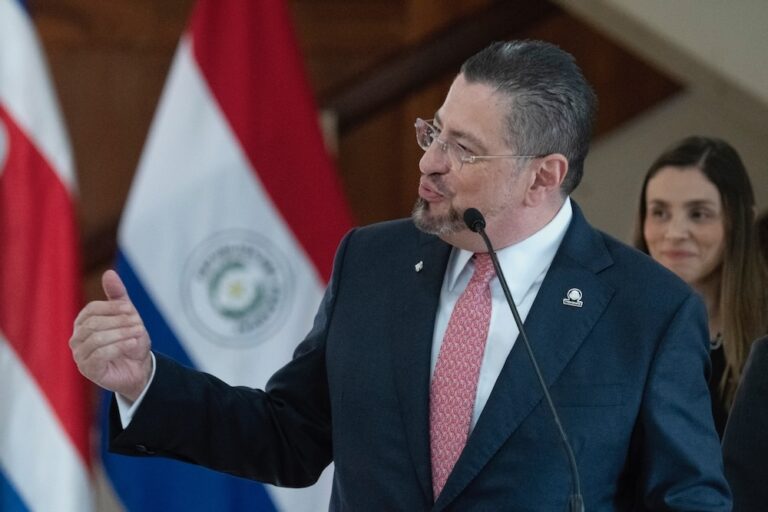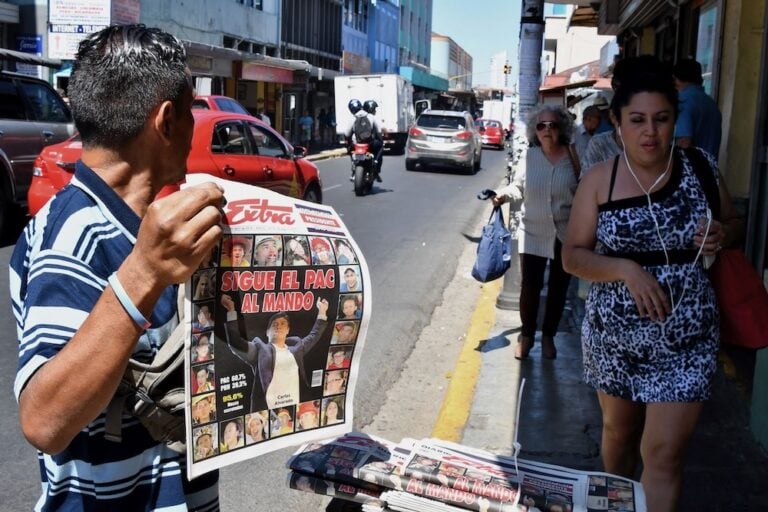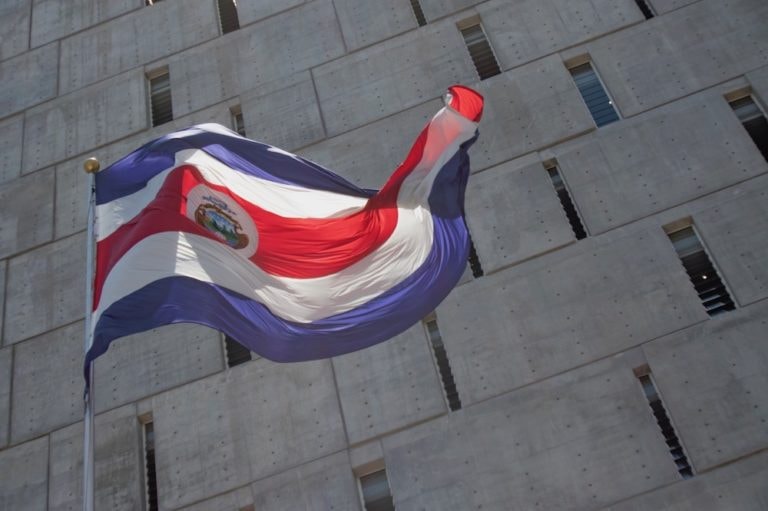(RSF/IFEX) – The following is a 3 July 2002 RSF press release: 7 July 2001 – 7 July 2002 First anniversary of the assassination of Parmenio Medina Reporters Without Borders and the Damocles Network express concern about a crime that nobody has been punished for and launch a campaign in the Costa Rican press on […]
(RSF/IFEX) – The following is a 3 July 2002 RSF press release:
7 July 2001 – 7 July 2002
First anniversary of the assassination of Parmenio Medina
Reporters Without Borders and the Damocles Network express concern about a crime that nobody has been punished for and launch a campaign in the Costa Rican press on the case
One year after the murder of Costa Rican radio journalist Parmenio Medina on 7 July last year, Reporters Without Borders and the Damocles Network today expressed concern that the masterminds behind the killing had still not been arrested.
“Tolerating impunity means accepting or at least running the risk that such crimes against journalists will happen again,” the two organisations said in a letter to Costa Rican President Abel Pacheco. “This cowardly act must remain an exception in the history of the Costa Rican press,” they said, noting that Medina’s death had been taken as a warning by all of the country’s investigative journalists.
A representative of Reporters Without Borders and the Damocles Network, who recently visited Costa Rica, noted however that a thorough and serious enquiry was being carried out by the police and courts. Those who committed the murder are said to have been found but detectives do not have enough evidence yet to arrest them.
Recognising that “substantial resources” had been provided for the enquiry, Reporters Without Borders secretary-general Robert Ménard and Damocles Network vice-president Jean-Pierre Getti called on President Pacheco to “continue doing everything possible to bring the killers to justice.”
To mark Medina’s death, the two organisations have launched an awareness campaign in the Costa Rican press, with a photo of the journalist captioned “One year already. Don’t allow him to be killed again by forgetting.” Experience has shown that the constant mobilisation of civil society and solidarity by other media are vital to obtain justice and ensure that impunity does not take root.
State of the enquiry into a murder that shocked Costa Rica
Medina, the well-known presenter of the satirical radio programme “La Patada” (“The Kick”), on Radio Monumental, was murdered on 7 July last year near his home, a dozen kms from the capital, San José. An unidentified gunman fired several shots before fleeing.
The murder was the first gangster killing of a well-known person for many years in this small country without an army, and it caused a big stir. “Costa Rica has been wounded,” said the then-president, Miguel Angel Rodríguez. Civil society organisations have since campaigned regularly to demand justice in the case.
The investigation is headed by the prosecutor’s office in the town of Heredia. The Reporters Without Borders and the Damocles Network envoy who went to San José early last month saw that the enquiry had been provided with substantial resources. One year after the murder, five police detectives and two forensic experts are still working for the judge in charge of the case, Leda Méndez. In the past 12 months, 150 people have been questioned and about 20 pieces of evidence have been analysed.
On 25 June, local TV stations Canal 6 and Canal 7 quoted judicial sources as saying that Medina was killed by four petty criminals, not by professional killers. Gerardo Láscarez, interim head of the judicial police, told the daily paper La Nacion that they used the same methods as car thieves.
The TV stations said two of the suspected killers had been arrested later for other offences, a third had died in a bank robbery and the fourth was on the run. The four individuals were reportedly paid 10 million colons (27,000 euros) for the killing. However, the investigators are non-committal about these unnamed suspects and about who ordered the killing because they do not have enough proof yet.
Medina and Radio Maria de Guadalupe
Medina regularly denounced corruption in his radio programme, using a team of mimics, and so won himself plenty of potential enemies. In the months before his death, he had spoken several times of irregularities in the running of the Catholic station Radio Maria de Guadalupe, questioning the source of the station’s funding and the precise role of businessman Omar Chávez in the station. He also reported seeing Minor Calvo, the priest who founded the station, with a young man in a park frequented by homosexuals.
In May last year, after new revelations on his programme about Calvo, Medina received threats, and on 9 May shots were fired at his house. He obtained police protection but this ended a month later at his own request. Threats of legal action by Calvo and pressure on the station’s advertisers led Radio Monumental to stop broadcasting controversial parts of the programme. But Medina got a court to order the station to broadcast them. The Colombian-born Medina had lived in Costa Rica since 1969 and hosted “La Patada” for 28 years.
A campaign against impunity
On the first anniversary of Medina’s death, Reporters Without Borders and the Damocles Network are encouraging the Costa Rican press to run a campaign against forgetting the journalist (see image on www.rsf.org). This will be published by the daily papers La Nacion, Al Día, La Prensa Libre and La República, as well as the weeklies Semanario Universidad and The Tico Times. These newspapers are also keen to show their support in the face of a crime that is not just of concern for the victim’s family, but one that could threaten press freedom and all of the country’s media if it remains unpunished.


